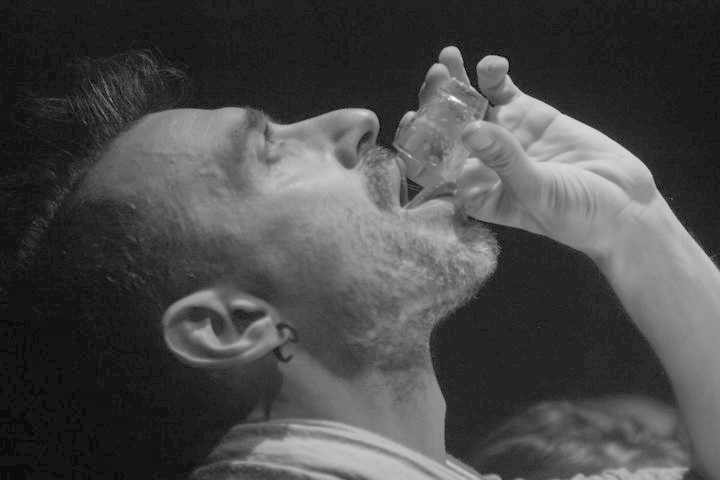ART AND FOOD: POLITICAL DIMENSIONS AND ARTISTIC POSSIBILITIES OF FOOD

During the fall semester of 2017/2018, PhDArts doctoral candidate Thalia Hoffman will teach the course Art and food: political dimensions and artistic possibilities of food. This course is part of the Art Research Programme of the Lectorate Art Theory & Practice.
The course encourages students to rethink the practical and conceptual role of food in the political and artistic realm. The aim is to open up new perspectives on taste and smell, and to inspire students to explore aspects of cooking, eating and feeding in their artistic practice.
Tutor
Thalia Hoffman
For whom?
For 2nd, 3rd and 4th year BA students of KABK and LU
Dates
4 whole day sessions, September 2017 – January 2018
Study Points
3 EC
This course focuses on the social and political dimensions of food production, distribution and consumption around the world, as well as on its artistic and aesthetic possibilities. Students reflect on the role of food and the significance of taste and smell in art. Subsequently, they are invited to further explore the role of food, of cooking, eating and feeding, in their own artistic practice. The course includes theoretical research as well as practical experiments. The course encourages interdisciplinary collaborations between students from different departments. Resulting works will be presented in an exhibition.
For 2nd, 3rd and 4th year BA students of the Royal Academy of Art and Leiden University.
Full attendance is obligatory in order to receive study points towards the Individual Study Trajectory (3 EC).
Between 10 to 12 students can participate in the programme.
The course will be in English.
Wednesdays from 10.00 – 18.00 h
20 September, 25 October, 6 December 2017 & 17 January 2018
Final session concluded by exhibition opening 18.00 – 19.00 h
Participants will be selected on the basis of their motivated application. Apply before Monday 11 September 2017 23:59 h (CET) by sending a brief letter of motivation (max. 400 words) to: lectoraatktp@kabk.nl. The result of the selection will be announced on Friday 15 September 2017 at the latest. No late submissions will be accepted.
Session 1 – 20 September 2017: Introduction
Group introduction and introduction to Food-Art. Students are invited to bring a sample of their favourite food/dish and elaborate on their personal connection to food.
Session 2 – 25 October 2017: Exploration of taste
Lecture, group discussion and experiments with food.
Session 3 – 6 December 2017: Between hosting and feeding
Lecture, discussion and exploration of art works involving feeding and hosting. Students present their final project concept.
Session 4 – 17 January 2018: Conclusion & exhibition opening
Student presentations, group discussion and reflection. Preparation of final presentation and exhibition, followed by exhibition opening.
Throughout the course, students will present their ideas and work-in-progress and reflect upon ideas and works presented by their fellow students. The course will be concluded with an exhibition of their individual and group work. After the concluding session, each student will be expected to write a final paper (500-700 words) reflecting on the assigned readings, class activities, assignments, group discussions, and/or work process and outcome. Students will be evaluated with respect to their attendance and overall participation, their critical reflection on and creative handling of the theories and strategies discussed, their collaboration with fellow students and their final presentation and paper.
The course is taught by PhDArts doctoral candidate Thalia Hoffman.
THALIA HOFFMAN (1979, Germany) is a visual artist working in film, video, performance and public interventions, based in Jaffa – Tel Aviv. She holds a BA in Humanities from the University of Bar-Ilan, and she is an MFA graduate (with honours) in Fine Arts from the University of Haifa, where she currently teaches. Hoffman started her doctoral study at PhDArts, Leiden University in 2015. She has directed a full length documentary and several short experimental films and videos. In addition, she develops social/political change programmes, using the agent of film or video, within different communities. Through her work, she encourages people to look, listen and feel their social/political landscape with attention. Another way Hoffman approaches this is through cooking and feeding, both in a professional and in an artistic context. Hoffman’s films, video works and performances have been shown in group exhibitions and festivals in Israel and around the world.
- Roland Barthes, ‘’Toward a Psychosociology of Contemporary Food Consumption’’, 2008
- Pierre Bourdieu, Distinction: A Social Critique of the Judgement of Taste, 1984
- Barbara Kirshenblatt-Gimblett, ‘’Playing to the Senses: Food as a Performance Medium’’, 1999
- Filippo Tommaso Marinetti, The Futurist Cookbook, 1989
- Yael Raviv, ‘’Eating My Words: Talking About Food in Performance’’, 2010
- Nevena Stajcic, ‘’Understanding Culture: Food as a Means of Communication’’, 2013